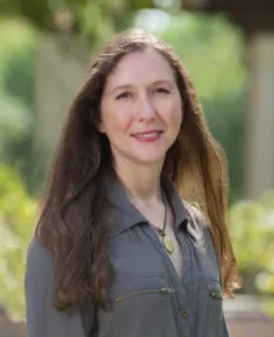Prices
Course Description
Intended Audience
This presentation is designed for clinicians trained in EMDR Therapy regardless of training in group protocols, though administrators interested in implementing group EMDR work in practice settings involving youth and their families would benefit as well.
This course is appropriate for post-doctoral graduates and clinicians with advanced knowledge of various therapeutic treatment modalities and theoretical orientations.
Skill Level of Audience
Beginner/Intermediate. Only EMDR trained clinicians can obtain EMDRIA Credits.
EMDRIA credits
1.5 EMDRIA Credits (Included in course price). CE credits are not offered for this course at this time. Please click here to see the information and instructions on how to obtain your credits/certificates of attendance.
Course Outline
Learning Objectives
Course will present a variety of possible protocols including resourcing protocols (ASSYST, G-REP, Four Elements) and processing protocols (G-TEP, Group Flash, IGTP-IOS, C-TEP) and relevant research that supports the use of group EMDR with children and families.
Participants will identify 5 adaptations to facilitate implementing group EMDR protocols with children and families.
Participants will identify 3 perceived barriers to implementing group EMDR practice and 3 possible solutions.

Cherilyn Rowland Petrie
Cherilyn Rowland Petrie specializes in using EMDR Therapy to treat children and adults who have experienced early trauma, attachment injury, and neglect who have complex clinical presentations. She was credentialed as an Approved Consultant in EMDR Therapy in 2013 through the EMDR International Association and now trains other clinicians to develop their EMDR skills. She has volunteered with the Greater Orlando TRN 2015-present and was TRN Coordinator for the Pulse Nightclub response. Recently, she co-authored a book chapter on Group EMDR work with children and families and has been excited to offer group work as an option for her clients.

Gelly Asovski
Gelly Asovski LCSWR, RPT-S is a Yiddish/English Bilingual Registered Play Therapy Supervisor, EMDR Certified Therapist and EMDR Consultant. Since 2002, Gelly works with children, teens, adults and family systems integrating culturally competent Play Therapy, Parent coaching, EMDR and offers EMDR and family therapy Intensives. Gelly consults with therapists seeking to integrate both Play Therapy and EMDR into their therapy practice. Gelly is a Chapter Coauthor in “EMDR GROUP THERAPY Emerging Principals and Protocols to Treat Trauma and Beyond” (2023). Gelly is the coordinator of the Rockland County, NY EMDR HAP TRN which specializes in community disasters, hate crimes and terrorism.
Frequently asked questions
Cancelations
There are no cancelations/refunds for any distance learning courses.
Grievances
All grievances must be in writing to associate@emdrhap.org and will be replied to within 5 - 10 business days.
Trademark Restrictions Purchasing / Showing content to others
** Please note** this distance learning course was given ownership from the presenter, Cherilyn Roland Petrie and Gelly Asovski, to Trauma Recovery/HAP and it cannot be used for resale and only should be viewed by the purchaser.
ADA assistance
Facilities used by Trauma Recovery/HAP for in-person training events are ADA compliant. Should you need any special accommodations (ADA) for an in-person training event, please contact Trauma Recovery/HAP staff at info@emdrhap.org at least 10 business days prior to the start of the training event. On-demand courses with videos offer closed captioning. If you encounter any inaccuracies or synchronization issues with the closed captioning, please contact associate@emdrhap.org.
How to obtain your credits/certificates
Please forward a copy of your confirmation email or receipt to associate@emdrhap.org and you will receive a reply with instructions on how to access the learning assessment and certificate. Please make sure the receipt has the course title on it or write it in the forwarded email.***Please note, due to a high level of requests, it may take 1-5 business days to receive a reply. If you do not receive a reply within the 5 day time period, please call the HAP office***Only one recipient per course purchase will be given CE’s. Multiple CE’s will not be given to groups who purchase one course viewing.
Certificates are awarded online after completion of the workshop. To receive your EMDRIA credits complete the entire course and complete the post-test, then print your certificate. For CE credits, participants print their own certificate after registering at CE-Classes.com, entering a keycode, and completing an evaluation form. Click here to know more.
• CE-Classes.com is the provider of CEs.
• Licensed Professionals should contact their regulatory board to determine course approval.
• There is no known commercial support or conflicts of interest for this workshop.
• CE-Classes.com is the provider of CEs.
• Licensed Professionals should contact their regulatory board to determine course approval.
• There is no known commercial support or conflicts of interest for this workshop.

